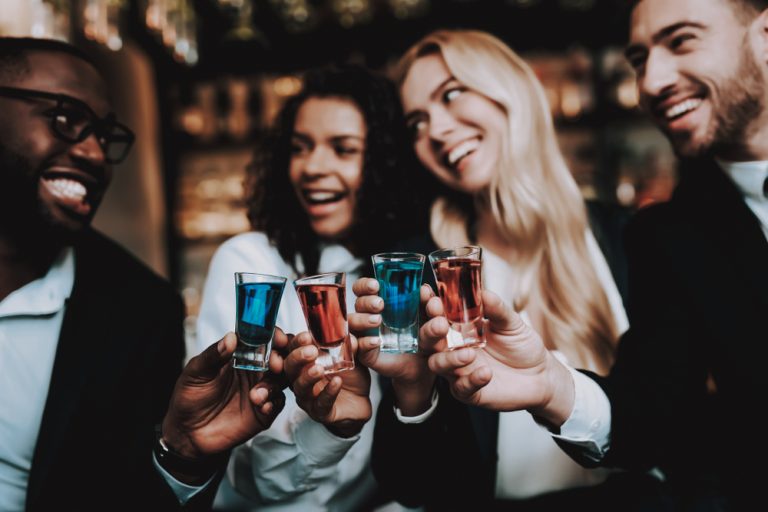Antipsychotic medications are used in small doses concurrently with other antidepressants to help heighten the effects of the primary medication and increase serotonin levels. Medication can provide consistent support to help with the mental and physical effects of depression. When alcohol is ingested, the primary result is the body being unable to perform its responsibilities. This can be seen during periods of intoxication, when speech, walking, thinking, and many other functions are heavily affected. From a neurocognitive standpoint, alcohol significantly impacts many of the neurotransmitters (brain chemicals) that oversee our emotional well-being. Because the brain reduces its output of GABA while a Sobriety person is consuming high amounts of alcohol, suddenly not drinking leaves the brain with a shortage of this calm-inducing chemical.

How to Address Negative Thought Patterns in Recovery
If feelings of depression after quitting drinking persist beyond a few weeks or worsen, seeking professional help is crucial. For some, underlying mental health issues such as bipolar disorder, PTSD, or chronic depression can exacerbate symptoms and impede recovery efforts. Seeking therapy and connecting with a qualified professional can significantly improve outcomes. During alcohol withdrawal, individuals may experience a wide range of physical and psychological symptoms. These symptoms can vary in severity and duration depending on factors such as the amount and duration of alcohol consumption, individual physiology, and overall health.
Drug and Alcohol Detox: What Is the Difference?
However, when treated with 30 and 60 mM of ethanol, the increase was not as significant, all of which produces an inverse U-shaped dose-response curve. This study was extrapolated to determine the effect of single and repeated ethanol exposure on hypothalamic β-endorphin release. It was later deduced that ethanol-induced hypothalamic β-endorphin release is not sustainable. Further ethanol exposure following 30 does drinking make your depression worse min of recovery period showed no increased release of β-endorphin. A prolongation of the recovery period to 60 min would, again, result in increased hypothalamic β-endorphin release in alcohol preferring C57BL/6 mice 123. During acute withdrawal, the brain and body are adjusting to the absence of alcohol.
- Genetics may play a role in the development of pathological alterations of BDNF expression.
- Certain neurosteroids modulate the function of the GABAA receptor (Paul and Purdy 1992; Devaud et al. 1996); plasma levels of these neurosteroids are decreased during AW (Romeo et al. 1996).
- The chronic use of sedatives like barbiturates and benzodiazepines can also produce withdrawal responses that resemble alcohol withdrawal syndrome due to their similar effect on GABA receptors.
- Treatment typically involves reintroducing the substance in controlled amounts or using a similar drug to alleviate symptoms, allowing for a gradual taper.
Related Posts
Psychiatric disorder usually occurs simultaneously with alcohol use disorder (AUD), with depression being the most prevalent 99,100. AUD is characterized by persistent binge alcohol intake while aware of its negative impacts. Behavioural abnormalities related to frontal lobe structural and functional alterations are studied in chronic alcohol abusers with and without Korsakoff’s amnesic syndrome. Korsakoff’s amnesic syndrome is a late complication of persistent Wernicke encephalopathy, which is caused by thiamine (vitamin B1) deficiency 49. It is characterised by memory deficits (retrograde and anterograde amnesia), mental confusion, and behavioural changes. Our experienced team understands the complex relationship between addiction and mental health.

How Long Is Inpatient Rehab Physical Therapy?
- While alcohol may initially provide relief from anxiety, prolonged use often worsens these symptoms and can lead to maladaptive drinking behaviors NIAAA.
- In other words, one of the most prominent characteristics of ethanol withdrawal, which is seizure, is manifested because of CNS hyperexcitability due to neurotransmitter sensitization, particularly glutamate-induced excitotoxicity 137.
- If you don’t drink heavily, these symptoms may pass in as little as 48 hours.
- Alcohol withdrawal symptoms can begin as early as 6 hours after the last drink.
Begin your journey to recovery with personalized drug & alcohol rehab—verify your insurance coverage in under a minute. It may seem cliche, but the age-old advice of taking care of yourself is one of the simplest and best things you can do. From eating healthy, getting adequate sleep, and doing nice things for yourself are vital to your recovery. Take time to do the things that you enjoy the most – read a book, go for a hike, https://sandwichpanel.ir/drug-addiction-definition-type-causes-symptoms-3/ and create your own “self-care kit”.
